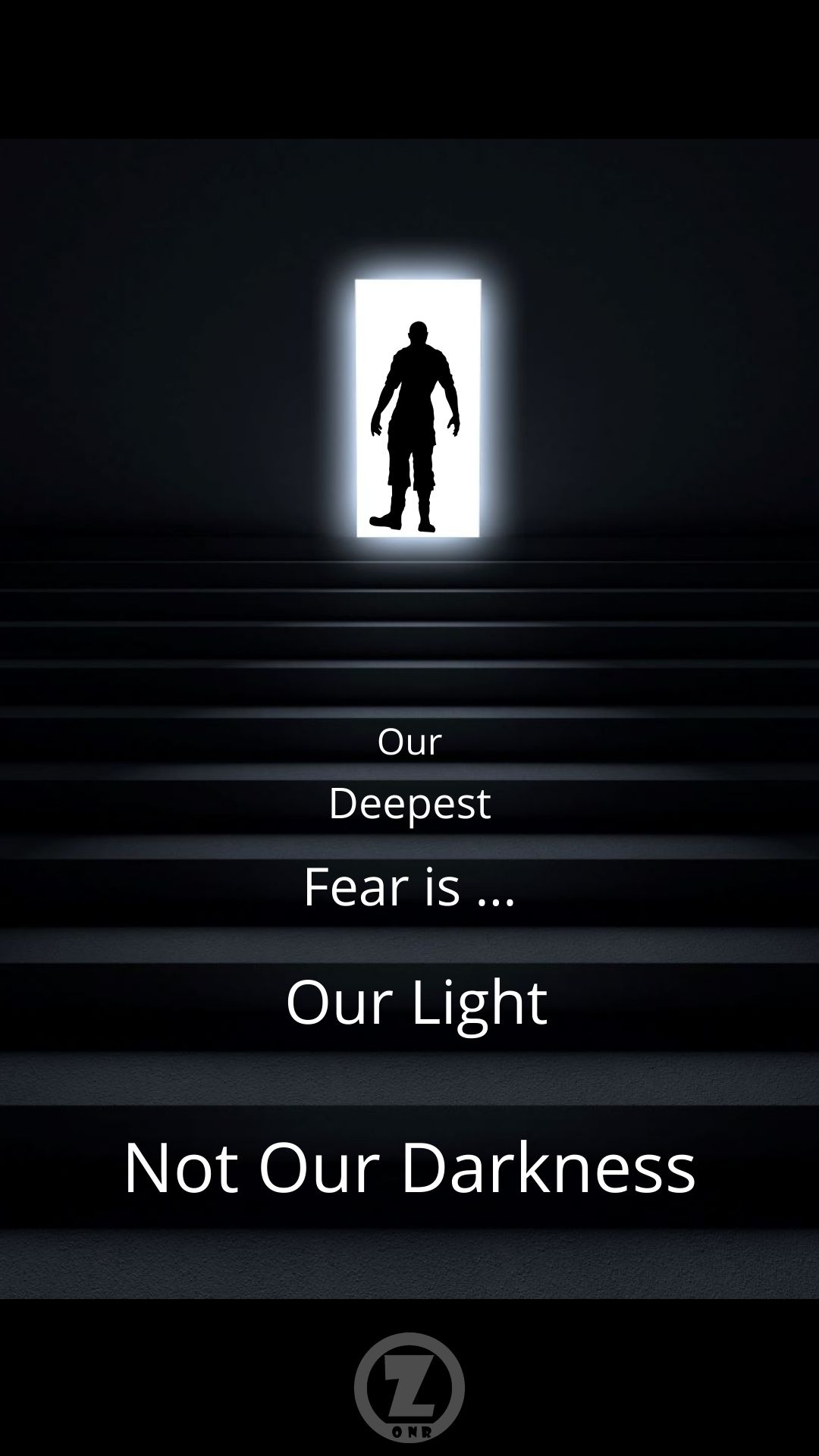” … So I have been using a tool counting back from 5 to 1 in situations where it seems as though I’m afraid or being worrisome. … I find that when I focus on me in each situation I find so much love and light at the end of each day.” – Jacqueline Habhab
~~~
Sign up to get Zonr for Today’s Full SFZ
How would you describe your own “light”?
OR
What would happen if we stopped being afraid of how amazing we could be?
~~~
Our Deepest Fear (our Light) – Marianne Williamson (4:41)
Overcoming Fear & Anxiety Guided Mindfulness Meditation(15:06)
🔍 English Analysis
Many fear change more than failure. Step Five in recovery asks us to admit deep personal truths. In It Works: How & Why, the writers explain that this fear is natural. They point out that revealing our secrets can feel terrifying. However, growth only happens when we confront those secrets.
Similarly, Twelve Steps and Twelve Traditions shows how fear causes hesitation. The text states that many in A.A. avoid Step Five at first. This reaction shows how strong fear can be, even when change is necessary. Yet, this fear often hides our potential for healing.
Marianne Williamson, in her famous quote, reminds us that we fear our strength more than our weakness. In A Return to Love, she claims that our “light” is what truly frightens us. Carl Jung would agree. He believed that embracing our full selves, both shadow and light, brings wholeness. Jung called this “individuation”—the process of becoming whole by facing every part of ourselves.
Moreover, Brené Brown’s work on vulnerability echoes this theme. In Daring Greatly, she says that owning our stories makes us stronger, not weaker. Like Williamson, she believes that real courage means showing up even when we feel afraid.
All three perspectives urge honesty. Step Five is a turning point, not a punishment. When we face our truth, we uncover power.
📜 Citas en Español (SFZ y otros textos)
NO TENGAS MIEDO –
“A pesar de nuestro deseo de recuperarnos, podemos sentir miedo en este momento. Este miedo es natural. Después de todo, estamos a punto de confrontar la naturaleza exacta de nuestras faltas, admitiendo con sinceridad nuestros secretos a Dios, a nosotros mismos y a otro ser humano.”
(Funciona: Cómo y Por Qué, p. 35)
Y SIGUE ADELANTE –
“Tan intenso, sin embargo, es nuestro miedo y la renuencia a hacer esto, que muchos A.A. al principio intentan evitar el Quinto Paso.”
(Doce Pasos y Doce Tradiciones, p. 55)
“Nuestro miedo más profundo no es que seamos inadecuados. Nuestro miedo más profundo es que somos poderosos sin medida. Es nuestra Luz, no nuestra Oscuridad, la que más nos asusta.”
– Marianne Williamson (1952 – )
activista espiritual, candidata presidencial y fundadora de Project Angel Food
🧠 Análisis en Español
Muchos temen más al cambio que al fracaso. El Quinto Paso exige revelar verdades personales profundas. En Funciona: Cómo y Por Qué, los autores explican que este miedo es natural. Revelar secretos puede ser aterrador. Sin embargo, el crecimiento solo ocurre cuando enfrentamos esas verdades.
De manera similar, Doce Pasos y Doce Tradiciones muestra cómo el miedo causa evasión. El texto indica que muchos en A.A. evitan el Quinto Paso. Esta reacción demuestra cuán fuerte puede ser el miedo, incluso cuando el cambio es necesario. Pero ese miedo suele ocultar nuestro potencial de sanación.
Marianne Williamson recuerda que tememos más a nuestra fuerza que a nuestra debilidad. En El Retorno al Amor, afirma que nuestra “luz” es lo que realmente nos asusta. Carl Jung estaría de acuerdo. Él creía que abrazar todo nuestro ser, tanto sombra como luz, trae plenitud. Jung llamó a esto “individuación”.
Además, el trabajo de Brené Brown sobre la vulnerabilidad resalta este punto. En El Poder de Ser Vulnerable, dice que apropiarnos de nuestra historia nos fortalece. Al igual que Williamson, cree que el verdadero coraje es mostrarse incluso con miedo.
Los tres enfoques promueven la honestidad. El Quinto Paso es un cambio de rumbo, no un castigo. Al enfrentar la verdad, descubrimos nuestro poder.
❓Pregunta en Español para Reflexión
¿Qué pasaría si dejáramos de tener miedo de lo increíbles que podríamos llegar a ser?


Leave a Reply